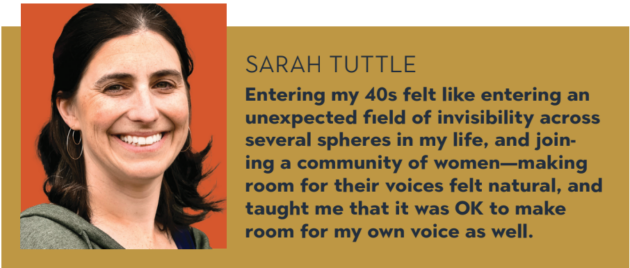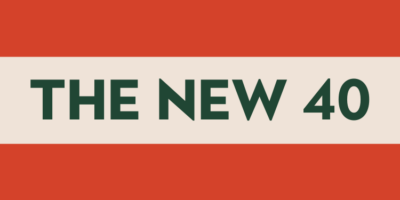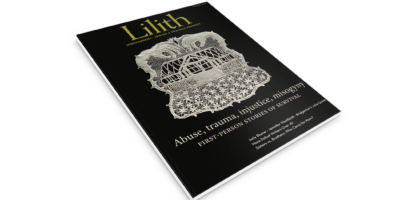
A Broken Tooth Is What Did It
Jewish rituals around grieving teach us that grief cannot be endless. For ourselves, for our families, and for our communities, we must honor and even visit our grief, but we cannot stay there. Over the last few years, many of us have faced season after season of grief, with little time to recover or to find our way back to a cycle of rest and growth.
My grief is old and young all at the same time. Like one of those plants that looks dead in the desert but explodes into life with the rain, it came up fresh in the early days of the Covid pandemic. A broken tooth made it hit home.
I was diagnosed with juvenile rheumatoid arthritis when I was four-and-a-half years old. My family got through those days because of extended family, community, and our temple. That love and care is foundational to my understanding of the world as a disabled adult. I learned what mutual aid was because it was crucial to my survival.
Yet I have never tied strongly into the disability justice community, even as an activist. I felt like an imposter. A lot of my disability stories have good twists. After diagnosis, my doctors were certain I’d never walk again without some kind of aid, if at all. Wheelchairs, walkers, and canes have drifted in and out of my life, but they have never been at the core of my experience. I’ve even had to yell at traffic cops to justify the handicapped placard on my car. All this because I do a good job faking mobility some days. I used a computer starting in third grade because writing by hand was a struggle (but look! I’m a fast typist). And despite all this, I felt like my experience had been too easy to count as “disabled.”

I grew to have a complex relationship with bodily autonomy, since so many other people are regularly involved in my care. It often feels like my body and I are uncertain crewmates, braced for the next impact, suspicious of each other at least some of the time, stuck together.
In March 2020, I realized how wildly misaligned I was with so much of the world—and with so many people I cared about, and who I thought cared about me and my family. It also intersected with a health issue I have rarely talked about—again, because my experience was traumatizing in moments, but so much less than it could have been. I was diagnosed—first with “barely cancer”, and then with angiosarcoma—in 2015. I had just accepted a faculty job at the University of Washington. I was having a small weird piece of scar tissue removed from an old hip replacement scar.
And shit got weird real fast. All you need to know is I didn’t die, it probably wasn’t angiosarcoma (see the first part of this sentence), and I received the diagnosis via a voicemail message after hours from a plastic surgeon’s office. I turned down chemotherapy when it was offered (because it didn’t make sense to me at the time, and statistics told me monitoring probably would suffice, and my family loved me enough to support my decision), but that meant pretty regular MRIs and CT scans. My last monitoring appointment before the pandemic sucked. Like any rational human having experienced shitty medical treatment I… avoided it. I was several months late to check on my cancer, and then the entire world ground to a halt.
None of this broke me. What did it was the tooth. I broke it a few weeks before we first locked down, on a chocolate chip (my mother is laughing, I can hear her), and it didn’t hurt. My dentist told me it wasn’t an emergency and we made an appointment to take care of it later, like the innocents we were.
Three weeks into lockdown, my tooth started to hurt. Just a little, then to where I avoided biting it mostly, then to the point where it was hard to do things because it H-U-R-T. I had put it off as long as I could. Though dentists weren’t yet allowed to be open, I called mine. He called back from his cell phone, bereft. He couldn’t do anything except tell me to take more Tylenol, or refer me out to get a root canal.
Having a broken tooth is so boring. It had absolutely nothing to do with my myriad of disability adventures. But I hung up the phone and I sobbed.

These days, despair is rampant, heavy, and draining with a news cycle that is frantic and intrusive, and algorithms built to reward anger, rage, and hopelessness. I feel held under a deluge.
My first hip replacement came at 19, the end result of too many years of damage. It was weird to be a teenager recover- ing from a hip replacement. I delighted my carers because I was not their usual customer. It held up except for a short scare a few years later, and after a few years of marriage my husband and I
Then, another change: my R.A. had been in remission for many years, leaving me with osteoarthritis and the scars across my limbs, strange aches in the titanium rod in my thigh. But as middle age snuck up on me, and as my hormones shifted, my old friend rolled back up to add a little extra creak in my step.
I started taking methotrexate for my R.A. Methotrexate is a chemotherapy drug that in very small doses is used against inflammatory diseases such as rheumatoid arthritis.
But just as I received my first prescription, people across the country suddenly denied access to medications that can be considered abortifacients, including methotrexate. Coincidentally, rheumatoid arthritis is diagnosed 3 times more frequently in women.
All those pieces of my identity are more tightly entwined than I admit. I have been a committed activist for reproductive justice for many years, since my time living in Texas. It took a pandemic to realize that I have chosen to spend a lot of time advocating for other folks’ autonomy, rather than facing my feelings
about mine.
Instead, I’ve told myself how lucky I am to sit in a relatively liberal city and state.
But access isn’t just about laws. In Washington State, roughly 40% of hospital beds are in Catholic hospitals, many of which, under the auspices of rulings by the Bishops, deny access to reproductive healthcare, including contraception and abortion, as well as full end-of-life care.
My daughter was born in a Catholic hospital. But my abortion after a failed miscarriage? That was in a surgical center. My OB/GYN was merciful. Had my abortion occurred in the hospital where my daughter was born, I would have been confronted with a ridiculous choice—to take home the contents of my uterus, or to consent to that medical waste buried under my name at a local Catholic cemetery.
And what about access to mental health care? In the last several years, I developed migraine auras that manifested at one point as extremely short-onset suicidal thoughts. At one point I practically begged my partner to have me committed. Which would likely have been a mistake, as our mental health infrastructure has crumbled, often keeping people in unsafe hospital situations for extended time, while not getting help to others in acute need.
This current moment scares me because I, more than some (and less than others), rely on our network of humanity, love, government, and infrastructure to survive. It absolutely terrifies me as we all bandy about the possibility of civil war or as I watch hospitals struggle to keep up with waves of illness. But I can’t live in fear. I don’t want to. I am more than my grief.
Even though my hope and trust in people was deeply damaged over the last several years, I look around me and remember that we know how to do this. I know how to do this. We are enough. Who amongst you knows how to splint an ankle? Support a friend and listen? Set up a phone tree? Stand up against an oppressor? Create an excellent meme? Bake a gluten-free cake? Help someone set up their phone or computer with cybersecurity in mind? Stand at a barricade? House someone visiting your town to seek abortion care?
We have each other. We need each other.
I know, in my bones, what mutual aid looks like on the ground. Our communities have moved through the world, and have supported each other and have supported the communities we have joined. Many of us have stories of family societies, of children sent to college, of funerals and houses paid for, of support when a family member falls ill.
A kugel, a check, a bill waived, a child cared for. We reach out to each other, remembering old ways, and creating new ways to move forward.
Sarah Tuttle is poorly contained on the best of days, but is summarized as a “space witch” by her children, as an adequately cuddly food provider by her pets, as an astronomy professor by the University of Washington, and as a queer bionic Jewish anarchist by herself.



